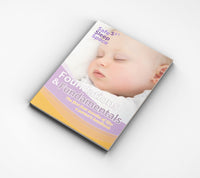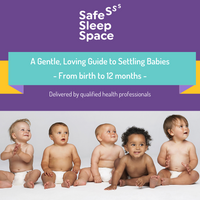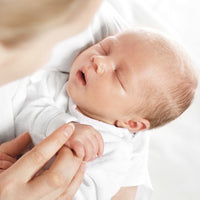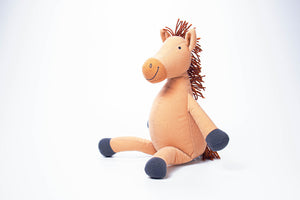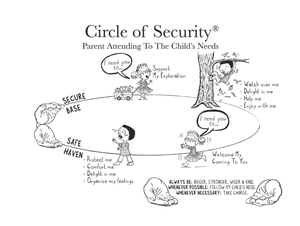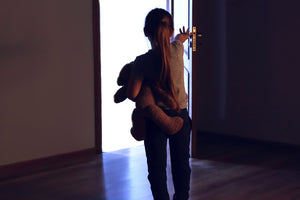It's Progression, Not Sleep Regression!

When it comes to sleep, most parents will say that just when they have it all worked out, that their pattern is predictable and evening times have returned to some normality, when the wheels change direction and their baby or toddler has a turn of events; often coined a ‘sleep regression’.
It’s not so much a sleep regression that is happening in most cases, but more likely a beautiful developmental progression of our babies and toddlers!
Don’t panic – all the hard work to help our babies and toddlers sleep is not all in vain, these sleep regressions don’t last long!
What is a burst of brain development or sleep regression?
A sleep regression is when a baby or toddler who was previously sleeping well (possibly through the night) for a long period of time and then, all of a sudden, without any obvious cause (like illness, teething, been travelling) their sleep suddenly goes all hay wire.
It’s handy for parents to know that these sleep regressions or what we prefer to call Brain Progressions, can last anywhere from 2 to 6 weeks and most likely coincide with a cognitive or developmental milestone. This is our babies and toddler’s brains in action.
When will these Bursts or Progressions usually happen?
Commonly sleep regressions tend to happen at 6 weeks, 3-4 months, 6 months, 8-10 months, 12 months, 18 months and 2 years old. And importantly, don’t worry most children do not experience a full regression at each of these milestones.
One of the most noticeable regressions (remember actually a brain progression!) typically occurs around six months of age, when a child has more physical strength and starts crawling.
It may be that as a parent you don’t even realise that the burst or progression is happening until your child masters his new skill and then you look back and have an “aha moment” and think “ ha...so that is what was happening!”
Dr. Daniel Lewin, a psychologist, sleep specialist, and the associate director of Sleep Medicine at Children’s National Health System states “It turns out the babies weren’t just messing with us, and that disruptions in sleep don’t occur randomly. But it is true that there isn’t really such a thing as an exact two-month or four-month or whatever-month regression”.
“I pin it not so much on ages but on developmental progressions and bursts,” Lewin says. “Often a regression in sleep is a sign that your child is about to make a big jump forward in some developmental domain.” A kid who’s about to crawl or talk, for example, might suddenly start fighting bedtime or waking during the night
These brain progressions coincide with beautiful developmental milestones in our babies/toddlers and are adaptive, normal developments—but can mean that night times won’t go as smoothly as they have been, at least for a little while.
Toddlers are tricky, get some back up with our parent support tools.
As your baby develops into a toddler, they become increasingly aware of the world around them.
While this can be an exciting time for your toddler, it can also be challenging and frustrating for you both, as they begin to exert their independence and insist on doing things on their own.
The Guide to Toddlers is the perfect place to learn all of the skills and behaviours of your toddler and gentle and effective ways to communicate with them.
Many parents have reduced sleep. The Safe Sleep Space website has a variety of resources and supports to provide tips and advice on how to assist your baby with sleep. You can also book a phone consultation to speak with a Sleep Consultant.
Other blog posts you will find helpful:
How to stop a toddler's bottles
Coping with toddler nightmares and night terrors
Amber beads. Why they're really not a good idea.
Three common sleep associations and how to stop them
Cindy Davenport is a child and family health nurse, midwife and lactation consultant, and has worked in the early parenting field since 1998. She is the Co- Director of Safe Sleep Space, an early parenting consultancy group specialising in sleep and settling of infants and toddlers.
